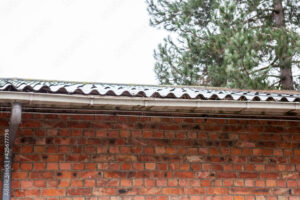When it comes to maintaining your home, understanding RCI codes is as important as knowing how to wield a hammer. RCI, which stands for “Residential Construction Index,” provides standardized codes that ensure safety, durability, and efficiency in home construction and maintenance. Today, we’re focusing on gutters and downspouts — critical components that protect your home from water damage.
For Tons of Great Free Information please hit “Like & Subscribe”
Websiteconstructionconsumeradvocacyinstitute.com
Podcastanchor.fm/galloway
www.youtube.com/@ConstructionConsumerAdvocacy
Understanding RCI Codes
RCI codes are essentially guidelines and standards set forth to ensure construction practices meet safety and quality requirements. These codes cover everything from the materials used to the methods of installation. Compliance with RCI codes is crucial for homeowners, DIY enthusiasts, property managers, and anyone involved in home maintenance.
Why Gutters & Downspouts Matter 
Gutters and downspouts play a pivotal role in home maintenance by directing rainwater away from your home’s foundation. Improper installation or failure to maintain them can lead to severe water damage, compromising the structural integrity of your property. That’s where RCI codes come in.
The RCI Codes for Gutters & Downspouts
The following are some key RCI codes related to gutters and downspouts:
- Material Specifications (RCI Code 1234.1)
- Gutters and downspouts must be made of durable materials such as aluminum, galvanized steel, or copper.
- These materials should be resistant to rust and corrosion to ensure longevity.
- Slope Requirements (RCI Code 1234.2)
- Gutters must have a minimum slope of 1/16 inch per foot to ensure proper water drainage.
- This slope prevents water from pooling and causing damage to the gutter system.
- Size and Capacity (RCI Code 1234.3)
- The size of the gutters and downspouts must be adequate to handle the rainfall intensity in your area.
- For example, a 5-inch gutter with a 2×3 inch downspout is typically sufficient for most residential homes.
- Installation Standards (RCI Code 1234.4)
- Gutters should be securely fastened to the fascia board with hangers spaced no more than 24 inches apart.
- Downspouts should be firmly attached to the exterior wall to avoid detachment during storms.
- Maintenance Recommendations (RCI Code 1234.5)
- Regular inspection and cleaning of gutters and downspouts are mandatory to prevent clogs from leaves and debris.
- Homeowners should perform these checks at least twice a year, particularly in the fall and spring.
Why You Should Care About RCI Codes 
Adhering to RCI codes ensures that your gutter and downspout system performs efficiently, protecting your home from water damage. Here’s why you should care:
- Prevent Water Damage
- Properly installed and maintained gutters and downspouts direct water away from your home, preventing potential damage to your foundation, basement, and landscaping.
- Increase Home Value
- Homes that comply with RCI codes are often more appealing to buyers, as these codes ensure the property has been maintained to high standards.
- Save Money
- While it might seem like an added expense to follow RCI codes, doing so can save you significant repair costs in the long run by preventing water damage and other related issues.
DIY Tips for Complying with RCI Codes
For the DIY enthusiasts out there, here are some quick tips to help you comply with RCI codes when installing or maintaining your gutters and downspouts:
- Use Quality Materials
- Invest in high-quality gutter materials that are resistant to rust and corrosion. This will save you time and money on replacements and repairs.
- Ensure Proper Slope
- When installing gutters, use a level to ensure the correct slope. Remember, a minimum of 1/16 inch per foot is required.
- Check and Clean Regularly
- Regularly inspect your gutters and downspouts for clogs and debris. Use a garden hose to flush out any blockages.
- Secure Attachments
- Make sure all hangers and brackets are securely fastened. Loose gutters can cause water to overflow and damage your home.
Conclusion
Understanding and adhering to RCI codes for gutters and downspouts is critical for maintaining the structural integrity of your home. Whether you’re a homeowner, DIY enthusiast, or property manager, following these guidelines will help you protect your investment, increase your home’s value, and save money in the long run.
Ready to take the next step in maintaining your home? Start by inspecting your gutters and checking for compliance with RCI codes. And if you need professional assistance, don’t hesitate to call in the experts.

